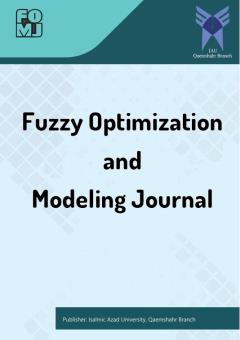This journal is following of Committee on Publication Ethics (COPE) and complies with the highest ethical standards in accordance with ethical laws.
Manuscript submission and the first evaluation
Manuscripts must be submitted through the Online Manuscript Submission and Tracking System (OMSTS). The editorial office evaluates the manuscript against the aims and scope of the journal. It will then be forwarded to at least 3 peer reviewers.
Peer reviewer and peer review process
The objective of the journal is to speed up the decision process without compromising on quality. To achieve this objective the peer reviewers may be members of the editorial board or external reviewers. The selection of peer reviewers depends on their availability and the subject of the manuscript. The manuscript will be accepted, if all peer reviewers recommend the manuscript be accepted.The manuscript will be rejected, if more than half of peer reviewers recommend the manuscript be rejected. In all other cases the reviewers’ comments will be sent back to the submitting author to revise the manuscript.
Publication Decisions
FOMJ's publication decision is based on a codified process. Journal policies are a part of this process. Content compatibility of each submitted paper with the scope of journal is one of the journal policies. COPE's guidelines also check in this part. Submitted papers must be free of allegations such as libel, copyright infringement and plagiarism. Reviewer comments are another part of decision process. The results of these two parts determine the final decision for each paper. FOMJ has been authorized to select valuable submitted papers for publication.
Identification of and Dealing with Allegations of Research Misconduct
Publisher and editor of the journal take reasonable steps to identify and prevent the publication of papers where research misconduct has occurred, including plagiarism, citation manipulation, and data falsification/fabrication, among others. In no case shall the journal or its editor encourage such misconduct, or knowingly allow such misconduct to take place. In the event that the journal’s publisher or editor is made aware of any allegation of research misconduct relating to a published article in the journal –the publisher or editor shall follow COPE’s guidelines in dealing with allegations.


